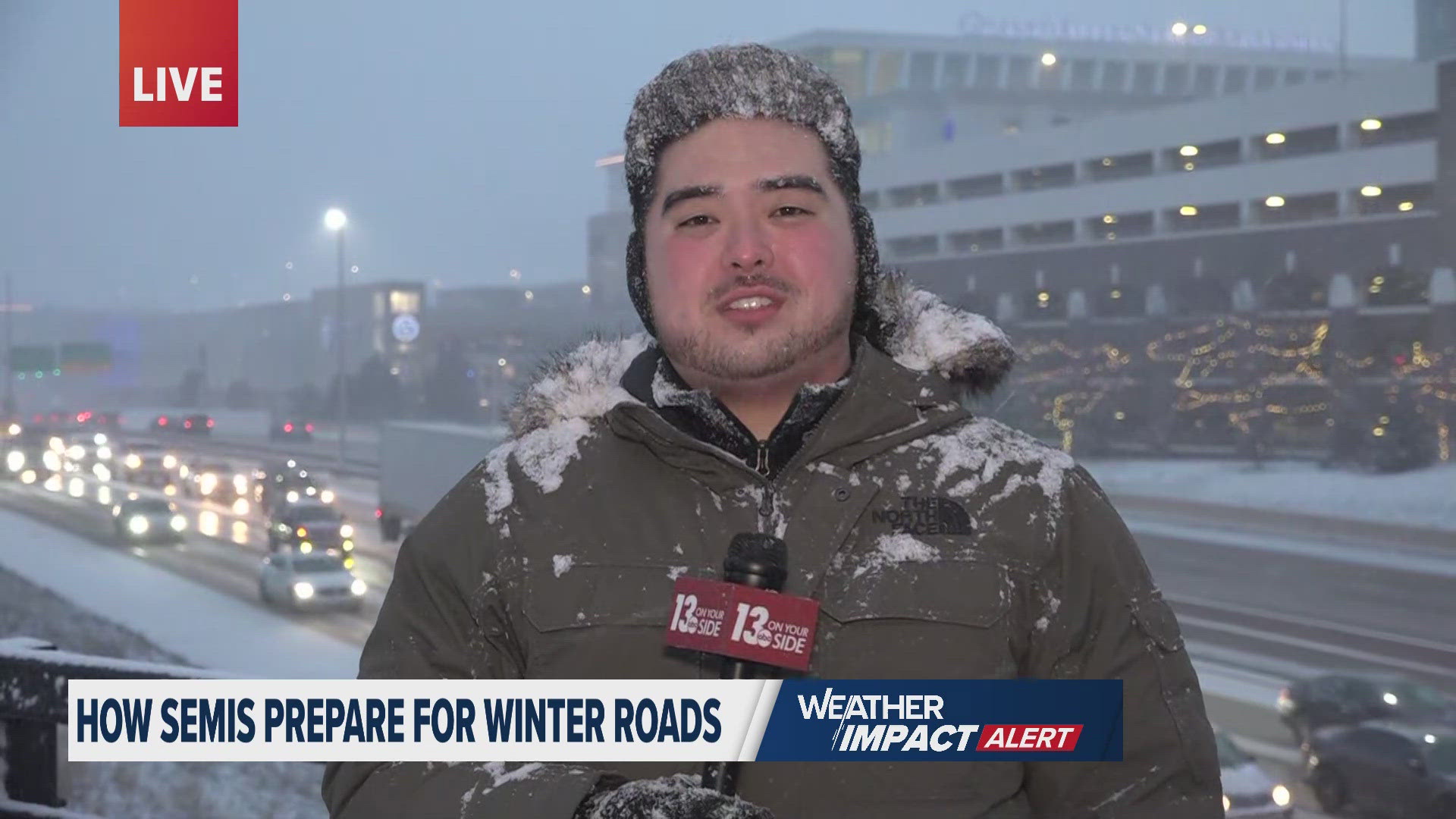GRANDVILLE, Michigan — The roads are busy for the evening rush hour Wednesday. Instructors at a local truck driving school tell us how semi-drivers prepare for those tough road conditions.
At West Michigan CDL in Grandville, students were practicing parking.
It's a time of year their president says some students purposely enroll in classes to make sure they get experience driving in snowy conditions.
"Just a lot of the same things that they do in their car, but now we're trying to get them to plan even further ahead," said Mike Birdsall, president of West Michigan CDL.
Birdsall says when semi-truck drivers endure difficult driving conditions, they are trained to increase their following distance and slow down.
"For us, just making sure you got good tires. I mean, you're going to want to have some really good tires. Some companies are going to want you to have chains to apply to the tires if you need better traction," he said.
Do some of these sound familiar? While they take the same precautions as all other drivers, there is still a key difference.
"It's going to take a lot longer to stop most of the time," Birdsall explained.
That's why Birdsall says it's important to teach drivers to anticipate the unexpected.
"People all changing lanes ahead for a reason. Maybe there's a hazard, a broken down car, someone's stuck in a drift, things of that nature, just planning ahead further, looking further ahead," he said.
Creating safe roads is a responsibility for all drivers, as Birdsall urges people to eliminate extra distractions and keep your distance.
"Try to give these trucks room, we can't stop them on a dime on dry roads, let alone on conditions that are substandard," said Birdsall.
He explained many commercial truck drivers on the road will be in communication with their companies to plan any alternate travel times, or if conditions become severe enough for drivers to pull over and wait it out.
"It's a company decision, and sometimes it's a driver decision," said Birdsall. "I think the companies are all going to be about making the right decision to keep their drivers safe and the general public safe."

